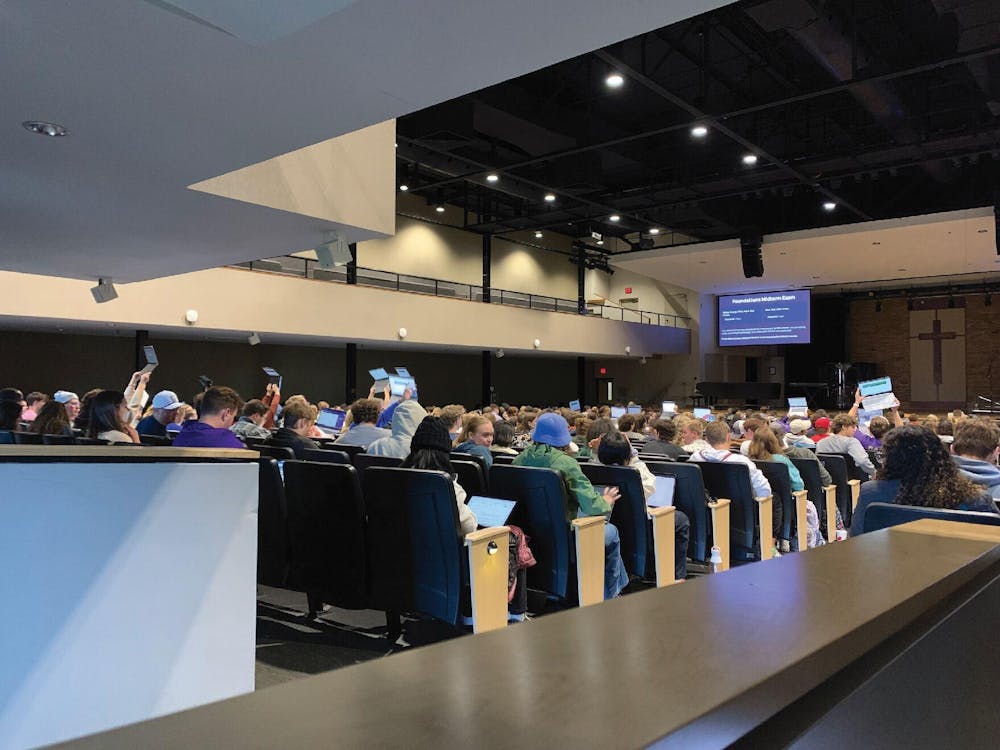Fifty-four hours. Depending a bit on how you count, that is the absolute minimum number of hours most students take in the foundational core here at Taylor.
If a student selects additional speaking and cross cultural courses, their core hours could easily climb into the sixties. That, in turn, is about half of the 128 minimum required hours for graduation.
For most students, nearly half of their hours at Taylor are taken in the foundational core.
Despite very positive commentary from students in their senior exit survey about their experiences in core classes, it is also true that many students see the core courses as hurdles to jump over or obstacles to “get out of the way.”
I am going to be a chemist or an accountant or an engineer, some reason. Why do I need to take history, literature, or philosophy? Aren’t those courses a waste of my time and money?
Actually, they are not a waste at all, even from a purely utilitarian perspective.
A 2019 article in the Harvard Business Review states, “research shows that employers overwhelmingly endorse broad learning and cross-cutting skills as the best preparation for long-term career success.” Particularly important are “oral communication, critical thinking, ethical judgment, working effectively in teams, written communication, and the real-world application of skills and knowledge — exactly the type of skills that a liberal arts education promises.”
It is simply false and even irresponsible to assume that the only skills worth acquiring are narrow, career-focused ones.
But, from a Christian perspective, there is an even better reason to put forth effort in foundational core classes.
At Taylor, we believe the “telos”—or end goal—of learning is “to cultivate wisdom.” Students will graduate in four short years, but they have the rest of their lives to live as thoughtful Christian citizens in a hostile world.
Emerging technologies such as artificial intelligence require not just competence in using the tool, but in considering what the tool is good for (and what it is not good for!). Discernment and wisdom are desperately needed, and these are inculcated through core classes.
Jobs and interests will change, salaries will vary, but wisdom is for life.
In 1 Kings 3:9, King Solomon humbly requested that God give him “an understanding mind . . . that I may discern between good and evil . . .” The following verses record that the Lord was pleased with Solomon’s request. He not only granted him wisdom but also “riches and honor” (v. 13).
No wonder that Solomon could write with such eloquence about the benefits of wisdom in the Book of Proverbs! Which one of us, when facing a difficult life situation, has not prayed that the Lord will give us enough wisdom to make the right decision?
So consider deeply investing in your core classes and trying to glean wisdom from whatever topic is under consideration. Some of your professors will do an excellent job of directly suggesting how the class’s material leads to great wisdom and discernment for life. But even where such guidance is not as evident or obvious, do your own thinking.
Ask yourself what you can learn about how to pursue the well-lived life in each class you are taking.
Taylor’s president Dr. Michael Lindsay put it this way in an article for the Echo several years ago: “That is why Taylor values its Foundational Core. Through this, we bring together disciplinary contributions in pursuit of a larger, more central purpose of higher education—the formation of souls who become servant-leaders.”
Yes, become servant-leaders!—and also men and women filled with wisdom to address the most pressing and thorny of life’s questions.




